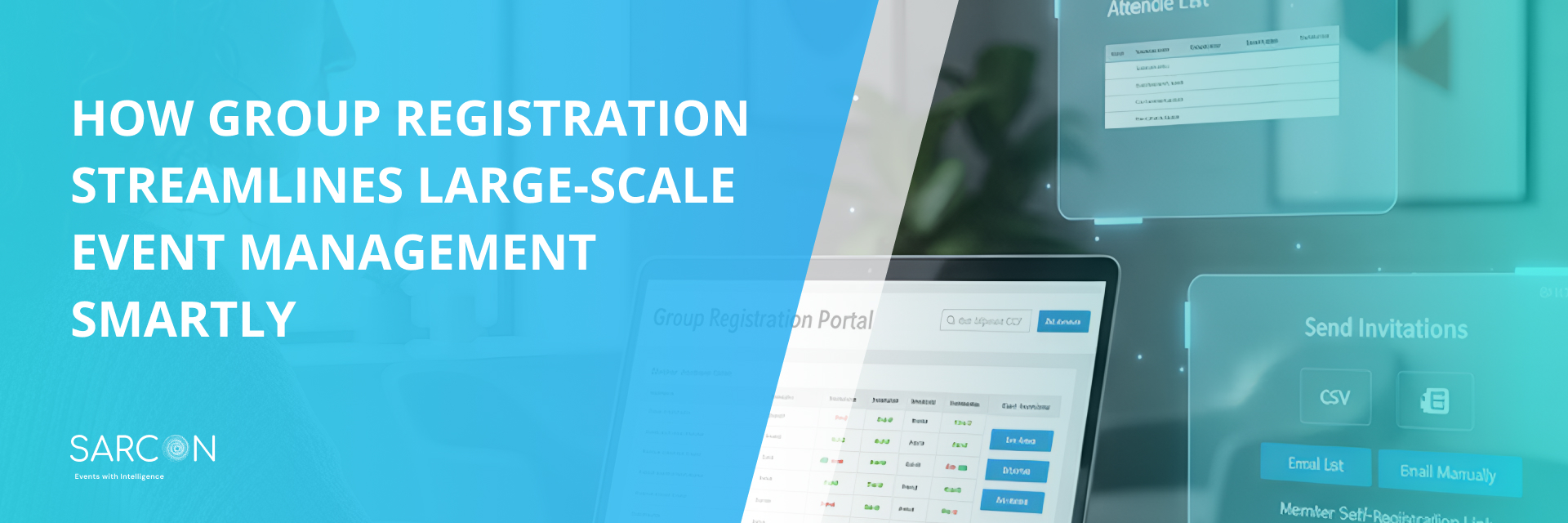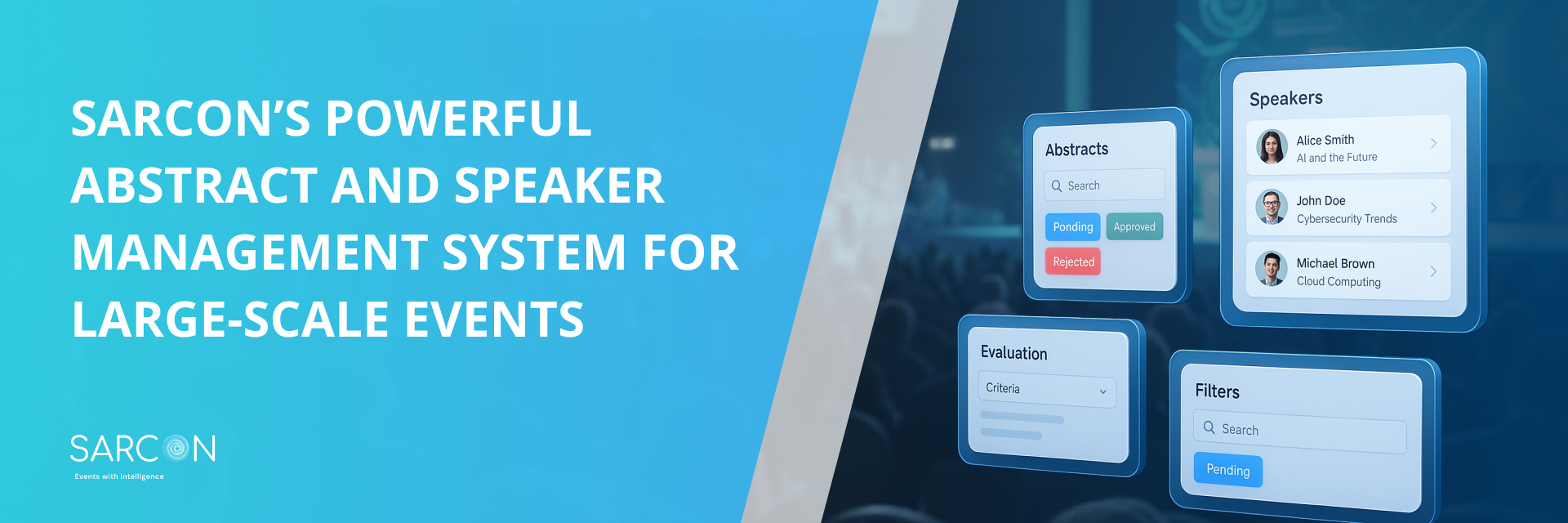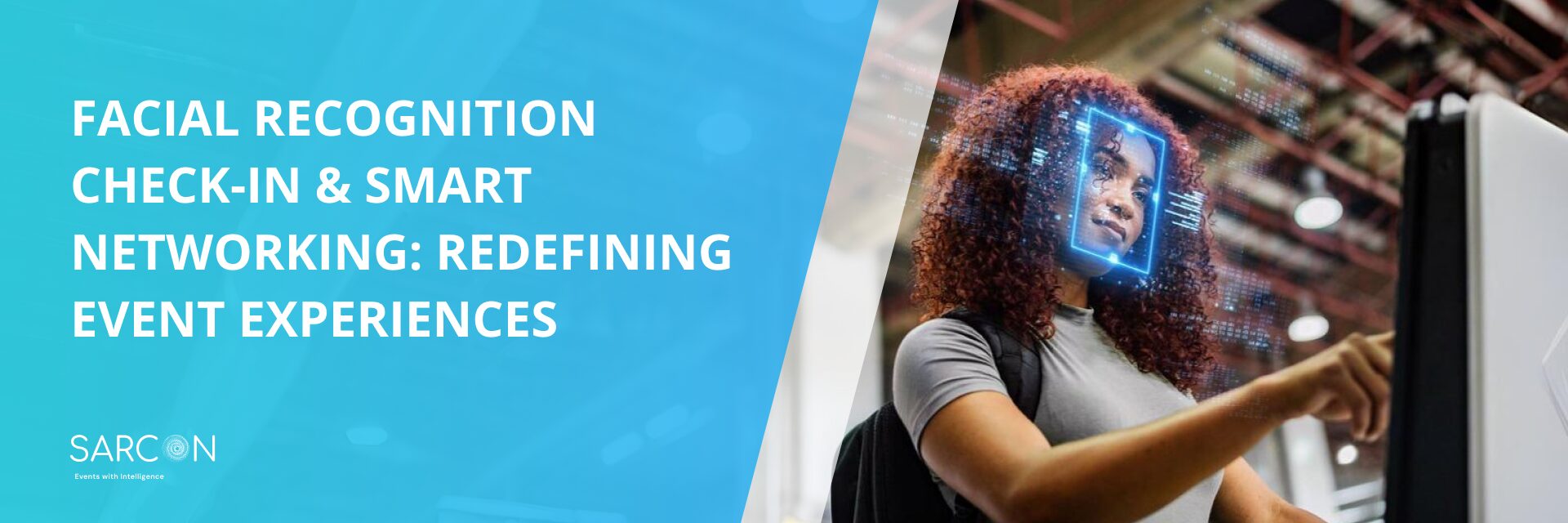Event marketing is a hot topic right now. With the rise of social media, there is more pressure than ever to produce events that are picturesque, unique, and, most importantly, shareable. But what does that mean for corporate and business-oriented environments? We may be tempted to think this does not apply to our reality. After all, open rates, click-through rates, and direct conversions are decreasing.
But event marketing is not a fad; it’s essential for building and maintaining a successful brand presence. By its very nature, event marketing is interactive, engaging, and personal.
What is event marketing?
Event marketing is a promotional strategy that centres around creating and overseeing an event that advances a product, service, or brand. It can be used to debut a new product, intensify recognition of the brand name, or produce sales. Event marketing comes in many shapes and sizes, from small local gatherings to large-scale national or international events.
One of the biggest advantages of event marketing is that it allows companies to connect with their customers and potential customers more personally. When done right, it can create an emotional connection between consumers and a brand, leading to long-term loyalty.
A majority of organizations allocate a large portion, if not half, of their entire marketing budget toward events. This is because marketers understand the importance and impact in-person and virtual experiences have on consumers.
According to Gartner, Inc, marketing budgets have climbed to 9.5% of total company revenue in 2022, an increase from 6.4% in 2021. Event marketing shouldn’t be taken lightly as it can make or break your company image. Promote your events shrewdly and use them as part of an overarching marketing strategy to see better ROI.
Types of event marketing
There are various types of event marketing, each with its advantages and disadvantages. Some common types of event marketing include trade shows, conferences, seminars, product launches, and corporate parties.
Trade shows
They are perhaps the most common type of event marketing. Trade shows provide an opportunity for companies to showcase their products or services to many potential customers in a short period. However, trade shows can be expensive to participate in and may require significant planning and coordination.
Conferences
Another popular type of event marketing is conferences. They are typically attended by industry professionals and offer an opportunity to learn about new trends and developments in one’s field. However, conferences can be expensive and may require significant travel.
Seminars
While seminars are similar to conferences, they typically involve fewer people and are more focused on teaching attendees about a specific topic. Product launches are events held to unveil and promote a new product or service. They can generate media attention and create buzz around a brand. However, product launches can be costly to execute and may require significant planning and coordination.
Why is event marketing important?
According to Forrester, event marketing makes up the largest portion of B2B marketing budgets, about 20%. Since event marketing makes up 20-25% of overall marketing budgets, it’s not hard to see why it is so important. A report by PriceWaterhouseCoooper showed that every year approximately $108 billion is spent on events in the United States alone.
Major marketing events offer consumers a deeper level of value than other content because they combine value with experience. It offers opportunities for companies to showcase their products or services in a unique way, engage with customers one-on-one, and generate leads that can be converted into sales.
Additionally, it can help build brand awareness and loyalty and foster relationships between a company and its customers. Instead of just reading or hearing about a company, event attendees have the opportunity to meet the people behind the brand and get a feel for its culture. This is especially important for startups or small businesses that are trying to establish themselves in a competitive market. By hosting events, they can set themselves apart from large, faceless corporations and show potential customers that they are approachable, personable, and most importantly, invested in their company.
For example, a company launching a new product might host an event specifically for early adopters and tech-savvy consumers. This way, the company can ensure that its message is reaching the right people and that it can generate qualified leads.
What are the benefits of event marketing?
Increase engagement
It is one of the main goals of event marketing. Companies can directly interact with their target audience and create a more personal connection by hosting or attending an event. This can result in better brand awareness and customer loyalty.
Building brand awareness
Event marketing is an excellent way to increase brand awareness and introduce your product or service to new audiences. It’s a great opportunity to generate some serious word-of-mouth buzz. In fact, event marketing is one of the most effective forms of marketing, with 84% of event attendees saying that they are more likely to buy a product after attending an event.
Generating leads
Events are a fantastic lead generation tool. By allowing attendees to test out your product or service, you’re increasing the likelihood that they’ll become paying customers in the future. And thanks to event management software like Sarcon, it’s now easier than ever to track event-based lead generation and attribute event-based sales to your marketing campaigns.
Improving customer satisfaction
Events are also a great way to improve customer satisfaction. You’re building a relationship of trust and mutual respect by allowing your customers to provide feedback and give input on your product or service. Additionally, events can show customers that you value their business and appreciate their feedback.
Creating loyalty and advocacy
Finally, event marketing can be used to create loyal customers and brand advocates. By giving your customers an enjoyable and memorable experience, you’re increasing the likelihood that they’ll continue doing business with you in the future. And by providing them with a platform to share their positive experiences with your brand, you’re opening up the possibility of turning them into one of your biggest marketing assets.
How is it valuable for brands?
Event marketing can serve as a solid foundation to build a brand’s identity. Not every brand can be a household name from the get-go; lots of PR and marketing is needed to get there, and event marketing can be a key part of that strategy. This is because it offers companies a chance to uniquely connect with their target audiences and build brand awareness and loyalty.
For large companies, event marketing can help them stay top-of-mind with consumers and maintain customer loyalty. Even if customers are happy with a product or service, they’re likely to forget about the company if they’re not regularly reminded of its existence. If a competitor hosts an event and offers attendees something new, customers may start to reconsider their loyalty. To prevent this, companies must host events regularly to keep their brand top-of-mind.
It is also important for thought leadership. If a company wants to be seen as an expert in its industry, it needs to market and share its insights with event attendees. This is a great way to build relationships with customers and prospects and generate leads.
Event marketing trends of 2022
Here are four event marketing trends that you need to be aware of to stay ahead of the curve:
1. The Rise of Influencer Marketing
In today’s social media-driven world, influencer marketing has become one of the most effective ways to market an event. By partnering with popular influencers in your industry—or even paying them to attend your event—you can tap into their large (and engaged) audiences and significantly increase awareness of your event
2. personalization
As consumers become more accustomed to receiving personalized experiences, they will come to expect nothing less from the events they attend. That means that event marketers need to start focusing on tailoring the event experience to each individual attendee. This can be done through things like on-site registration, targeted email campaigns, customization, and even incorporating artificial intelligence into your event app.
3. Live Streaming
Live streaming isn’t just limited to pre-recorded events. You can also use it to market your brand in real-time as well. This strategy is perfect for promoting new product launches, store openings, and more.
Another great way to use live streaming for event marketing is by hosting virtual. In order to reach the widest possible audience—and ensure that those who can’t physically attend your event don’t feel left out—you need to incorporate live streaming into your event marketing strategy. Fortunately, there are a number of platforms (e.g., Facebook Live, Periscope, YouTube Live) that make it easy to live stream your event.
4. Event Data Analytics
Thanks to technological advancement, we now have access to more data than ever, including data about our events. By tracking things like ticket sales, app downloads, website traffic, and social media engagement, we can gain valuable insights into what’s working (and what’s not) and use those insights to make more informed decisions about future events.
Tips on Improving Your Brand Presence
Event marketing is a complex process that can be difficult to plan and execute. For some, it simply refers to the promotional strategy for an event. However, others take a more strategic approach by using events to market their product or business effectively.
There are a number of different event marketing strategies that can be used, and the most effective ones will be tailored to the specific event and audience. However, some general tips on event marketing can be useful for any business looking to use this promotional tool.
Define Your Goals
First step in event marketing is to define your goals. What do you hope to achieve by hosting or attending an event? Is your goal to increase brand awareness, generate leads or something else entirely? Once you know what you want to accomplish, you can plan your event strategy accordingly.
Choose The Right Event
Not all events are created equal. When choosing which event to attend or host, ensure it aligns with your event marketing goals. For example, trade shows or conferences would be better if you want to generate leads than a charity gala.
Promote, Promote, Promote
Once you have chosen your event, it is time to start promoting it. This can be done through a variety of channels, such as email marketing, social media, and even traditional advertising. The main thing is to get the word out about your event and ensure people know when and where it is taking place.
Have A Plan B (And C)
No matter how well you plan, there is always the possibility that something could go wrong on the event day. That is why it is essential to have a backup plan (or two). This could be anything from having extra supplies on hand in case of bad weather to having a contingency plan for if your keynote speaker cancels.
Collect Data
One of the most important aspects of event marketing is collecting data. This data can be used to measure the success of your event and make necessary adjustments for future events. Make sure to collect contact information from attendees so you can follow up with them after the event. You should also survey attendees to get their feedback on the event itself.
Event marketing can be a great way to achieve a variety of business goals. By following these tips, you can ensure that your event is successful.
Conclusion
Event marketing is constantly evolving—and as an event marketer, it’s your job to stay on top of the latest trends so that you can produce successful events time and time again. But event marketing isn’t just about following the latest fads; it’s also about understanding your audience, being creative, and thinking outside the box.
When done correctly, event marketing can be an extremely effective way to build brand awareness, generate leads, and create lasting relationships with customers and clients. If you haven’t incorporated event marketing into your overall marketing strategy, now is the time to start. With some planning and help from event management software like Sarcon, you can produce events that will leave a lasting impression on your audience.



